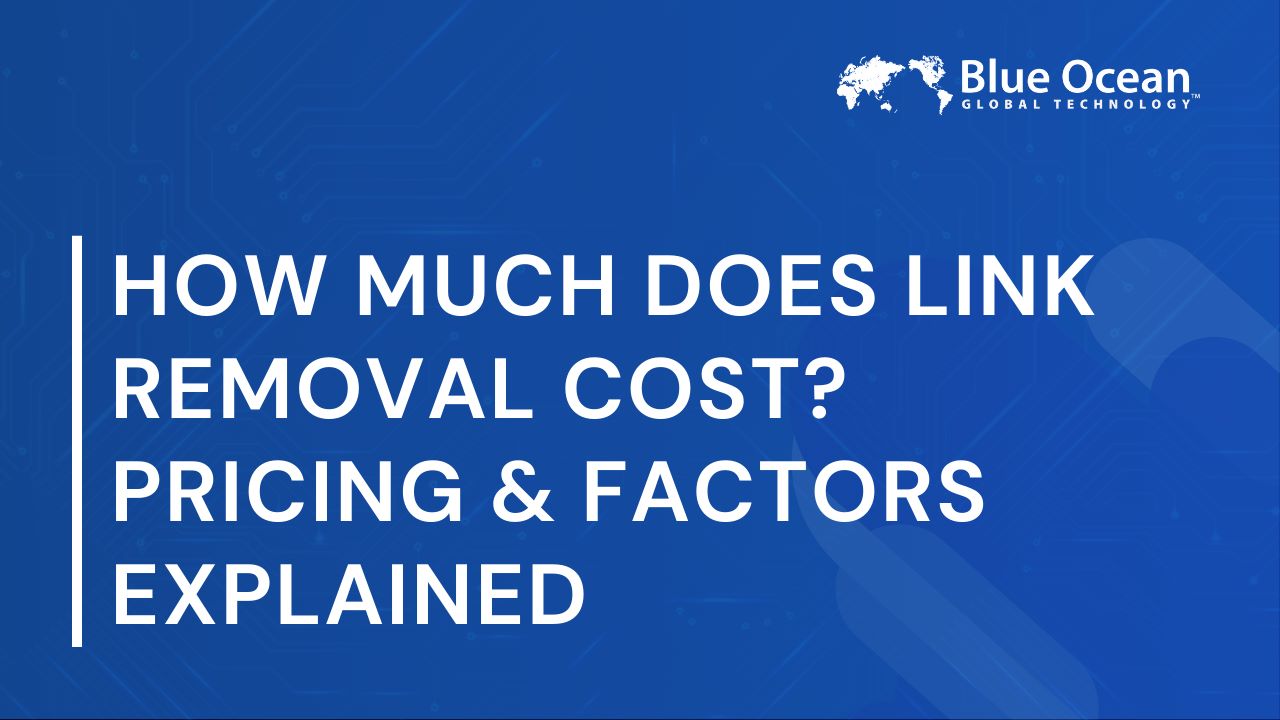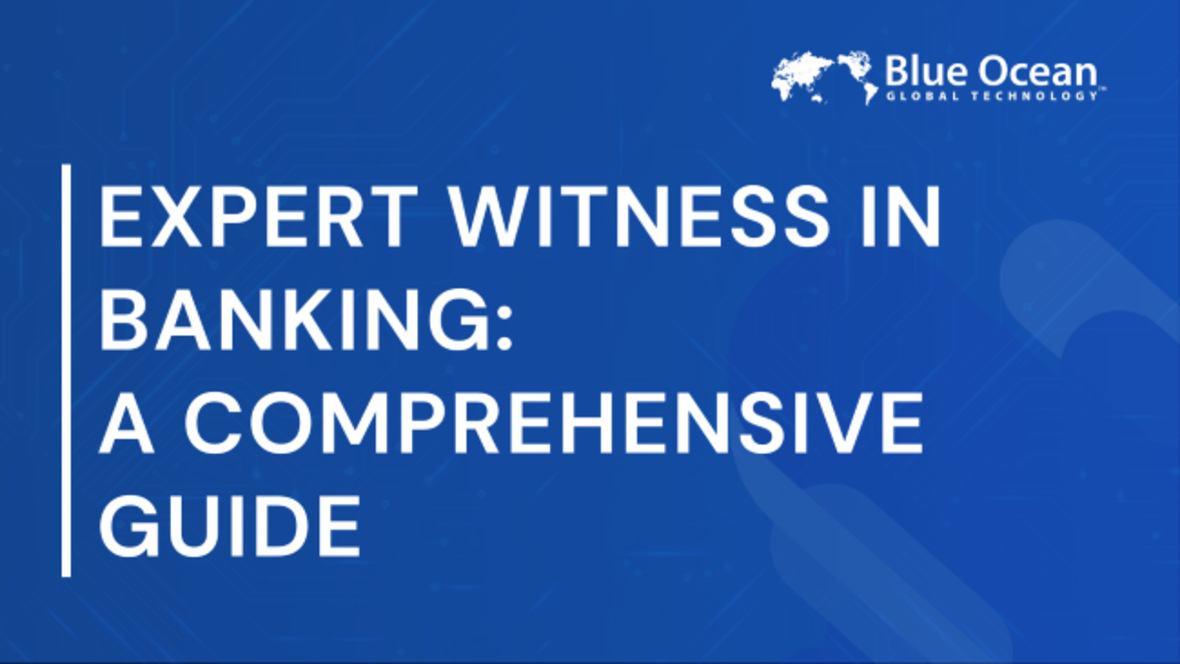What is Risk Management?
Risk management involves recognizing and evaluating the threats to your business and its operations ultimately mitigating them. These threats may arise from uncertainties, liabilities, and management errors.
Risk management consulting can identify different aspects of risks to protect a company’s reputation. Any harm to a company’s reputation is detrimental to its success and sustainability. Partner with Blue Ocean Global Technology to start assessing and mitigating these threats to stay ahead of the curve.
Why Do You Need Risk Management?
Catching risks before they impact your business will benefit you in the short and long run. In the worst case-scenario, threats to your business operations could result in detrimental consequences. Financial repercussions, negative reputations, and business closures are only a few of the negative impacts of reputation vulnerabilities. Business leaders and organizations should recognize the importance of investing in resources to minimize these possibilities.
These risks can impact both private and public entities. Risk management in the federal government, for example, involves the consideration of potential threats to communities and their constituents. Aspects include managing threats from cyber attacks, assessing the quality of digital infrastructure, and preventing dangers to personal and public safety.
Additional considerations in the federal government include managing bad reputations and negative press, which can inflict significant damage on individuals and groups alike. Risk management consulting is an imperative step, as it helps consider all possible risks to minimize their negative impacts.

Client Engagements
Reputation management consulting at Blue Ocean Global Technology entails an honest and objective analysis of the areas that require improvement. This allows us to recognize where the most serious vulnerabilities lie. Some risks may be tied to public perception and the difference between how you view yourself and how others view you. We prioritize intra-company communication to align several aspects of your vision with your capacity to avoid the risk of a negative reputation.
Blue Ocean Global Technology’s risk management strategies focus on the positive and address the negative gracefully. Our team understands the importance of forgoing cover-ups and recognizing how they will not age well in today’s digital environment. We encourage ethical, honest strategies that will help assess risks and manage them using the most effective solutions achievable.
How Will Risk Management Help You?
Utilizing risk management ahead of time will help you determine the most effective strategy to manage any threats to your reputation and business operations. Blue Ocean Global Technology’s consistent, systemic approach to risk management gives you the security to rest assured that your reputation is in good hands.

for your
Risk Management needs.
Related Reads
FAQs
Risk Management
- What are the 5Ws of risk management?
The first two Ws in risk management are “Who and Where do we go?” which means finding a reliable partner to objectively address concerns for threats. This stage is all about gathering information about threats, their probability, and their impact. The third, “What should we do?” is the stage for developing a strategy after the threats have been identified. Creating a plan of action to address and mitigate these risks is crucial to start motion to stay ahead of the curve.
Fourthly, “When should we do this?” refers to the right timing for you to start addressing risks. Staying ahead and being early is ideal, but risk management should be a continuous process. Threats may arise at any unpredictable time and with every decision you make. The last W, “Why are we doing this?” circles back to the reason behind the mitigation strategy. Every person has a different reason to mitigate risk, and this allows you to clearly outline objectives and goals before seeking risk management.
- How do you mitigate risks?
The ideal strategy to mitigate risks is to consistently monitor potential threats and their consequences to your business and reputation. Many lack the time or resources to accomplish this, which is why it is wiser to consult an external firm for an objective perspective. Remaining aware of possible threats before they occur can help you become better prepared to make the right decision on how to address them. Many risks happen from a variety of sources both external and internal, and spotting them is essential to safeguarding your reputation.
- How do you develop a risk strategy?
You develop a risk strategy from the ground up. Consider the services you offer, the number of departments, the number of clients, and any financial aspects involved. Build a clear understanding of the context, your objectives, and your stakeholders. When you successfully identify the potential risks, you can evaluate them in terms of how they will impact your organization.
Consider the level of risk and its source, along with its potential consequences, and which aspects of the organization it may impact most. Mitigation can emerge in many forms according to your strategy and the level of concern for each threat. You can choose between accepting, avoiding, or transferring the risk.
- How are successful risk management strategies measured?
You can measure the success or failure of a risk management strategy through certain metrics. Track the number of risks identified and correlate them with the number of risks that have occurred. This will allow you to compare and contrast the number of risks mitigated and whether your strategy has succeeded. When the pros outweigh the cons of these measures, you will know that your strategies are successful.
- What are the types of risks a business faces?
There are many aspects of a business that can be vulnerable to threats or external attacks. Risk management consulting intends to recognize and monitor these.
- Strategic Risk: Threats that can impact an organization’s strategic objectives and business plan
- Compliance Risk: Threats that result from regulatory requirements and whether or not the business meets them
- Financial Risk: Risks that harm a company’s profitability and financial planning
- Reputational Risk: Threats that relate to a business’s image and how the public perceives them
- Security Risk: Possible threats to the organization’s information, which can entail data leaks and security breaches
- Quality Risk: Risks in relation to the products and services offered which may cause the loss of customer base
An external team of professionals may help you identify which of these risks apply to you. Identifying their possibilities is crucial to mitigate them and find an appropriate solution.
- What is the risk management process?
Risk management involves the identification and mitigation of various risks to businesses and brands. The major steps of risk management involve identification, assessment, control, monitoring, and reporting. All of which is important to manage risks that can pose a detriment to businesses.
- How do you create a business continuity plan?
Having a business continuity plan becomes crucial, as you can be prepared for any given situation. When or if things start going wrong, you will already have a plan to handle the issue. In writing a business continuity plan, you would want to anticipate possible risks and consider what might go wrong. Then, you can create a risk management plan to address the issue when it arises and respond quickly. Having a solid business continuity plan can help you and your company adapt as things change.
- How does risk management affect a company's reputation?
Reputation is one of the most vulnerable areas for any business. Risk management can prevent incidents before they happen, protecting a company’s reputation. Negative publicity, loss of confidence from customers, or possible damage to long-term viability can all be prevented with good risk management.
- What is a risk identification process?
Risk identification processes mainly consist of a detailed analysis of potential threats, including financial, reputational, operational, and external cyber threats. The process also involves prioritization of risks by consultants based on occurrence and potential impact. This proactive measure assists a business in undertaking efficient mitigation strategies.
- How can I get started with risk management for my business?
Start by reaching out to a risk management consulting firm. Their team of experts can help assess the current risks, provide tailored strategies, and implement systems to protect your business and its reputation.









